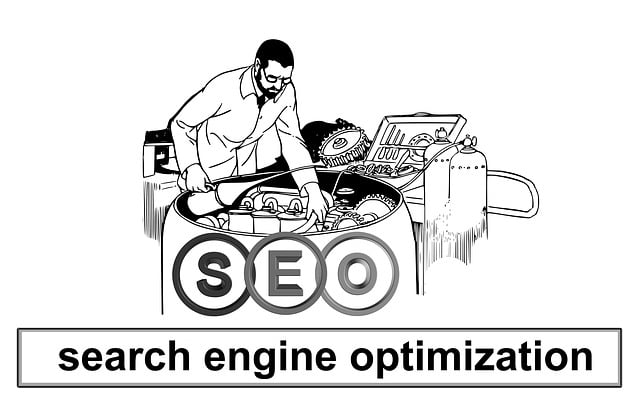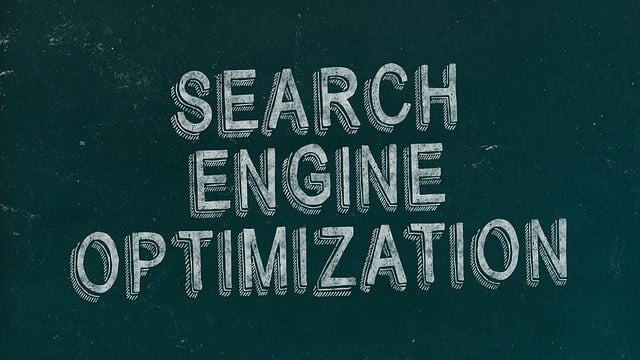The text serves as a comprehensive guide to understanding and implementing SEO Services (Search Engine Optimization), emphasizing its importance in digital marketing. It highlights how SEO Services enhance online visibility and drive organic traffic by optimizing websites with relevant keywords, high-quality content, and user-friendly design. The guide covers strategic steps from keyword research to technical adjustments, crucial for informed decisions. By implementing these practices, businesses can expand their online reach, improve user engagement, and boost conversions in today's competitive market. Key aspects include on-page SEO (keywords, speed, responsiveness), off-page strategies (link building, social media), local SEO (Google Business Profiles, location-specific content), technical SEO (site speed, mobile-friendliness), content creation, and measuring success through KPIs. The evolving SEO Services landscape includes adapting to voice search, AI integration, mobile optimization, and in-depth content marketing.
In today’s digital landscape, a robust online presence is non-negotiable for any business aiming to thrive. Website SEO solutions are the cornerstone of achieving top search engine rankings and capturing your target audience’s attention. This comprehensive guide delves into the multifaceted world of SEO services, covering everything from understanding fundamental concepts like on-page and off-page optimization to exploring emerging trends that shape the future of digital visibility. By the end, you’ll be equipped with insights to enhance your website’s performance and stay ahead in the competitive online arena.
Understanding Website SEO: A Comprehensive Guide

Understanding Website SEO is a comprehensive guide designed to help businesses navigate the complex digital landscape. Search Engine Optimization (SEO) services are essential for any online presence aiming to rank higher on search engine results pages (SERPs). By optimizing websites with relevant keywords, high-quality content, and user-friendly design, SEO ensures your target audience finds you easily. It involves a range of strategies from keyword research and on-page optimization to link building and technical adjustments, all working together to improve visibility and drive organic traffic.
This guide breaks down the process into manageable steps, empowering businesses to make informed decisions about their digital marketing efforts. By implementing effective SEO practices, companies can increase their online reach, enhance user engagement, and ultimately, boost conversions. Whether you’re a small startup or an established brand, mastering SEO is a game-changer in today’s competitive market.
The Role of Keywords in Search Engine Optimization

Keywords play a pivotal role in search engine optimization (SEO) as they are the bridge between what users search for and what websites offer. When you think about it, search engines like Google have evolved to become highly sophisticated information retrieval systems. They scan vast amounts of data to understand user intent behind queries and deliver relevant results. This is where keywords come into play. Strategic keyword placement helps search engines index websites accurately, ensuring they appear in the right searches.
Effective SEO services leverage keyword research to identify terms that potential customers use when searching for products or services online. By integrating these keywords naturally into a website’s content—including titles, headings, meta descriptions, and body text—search engines recognize its relevance. This not only boosts visibility on search engine results pages (SERPs) but also drives targeted traffic, ultimately contributing to higher conversion rates and better business outcomes.
On-Page SEO Techniques for Enhanced Visibility

In the realm of digital marketing, on-page SEO techniques are pivotal for boosting a website’s visibility and ranking on search engines. These strategies focus on optimizing individual web pages to make them more relevant and engaging for both users and search algorithms. One key aspect is keyword integration, where relevant terms are strategically placed in titles, headings, meta descriptions, and throughout the content to reflect user search queries. This ensures that your website resonates with targeted audiences and aligns with their intent.
Additionally, enhancing page load speed, ensuring mobile responsiveness, and optimizing images for faster indexing are essential on-page SEO practices. Structured data markup also plays a significant role by providing search engines with clearer information about the content, leading to rich snippets and improved click-through rates. By implementing these techniques, businesses can elevate their online presence, attract organic traffic, and ultimately enhance their digital footprint through effective SEO services.
Off-Page SEO Strategies to Build Authority

Off-page SEO strategies are essential components in building authority and driving organic traffic to your website. These tactics focus on actions taken outside of your site to influence search engine rankings. One powerful method is link building, where the goal is to acquire backlinks from reputable and relevant websites. High-quality backlinks serve as votes of confidence in the eyes of search engines, indicating that your content is valuable and trustworthy. This strategy helps search algorithms understand the context and authority of your website, leading to improved search rankings.
Social media engagement plays a significant role in off-page SEO. By actively participating in social platforms, you can increase brand visibility, drive referrals, and earn backlinks indirectly. Sharing engaging content, interacting with audiences, and building relationships with influencers can all contribute to enhancing your website’s authority. Additionally, guest blogging on popular industry blogs or contributing to online forums relevant to your niche allows you to establish yourself as an expert, attract targeted traffic, and potentially gain valuable backlinks from these authoritative sources.
Local SEO: Targeting Your Local Audience Effectively

Local SEO is a powerful strategy for businesses aiming to dominate their regional market. By optimizing your website and online presence for local search, you can attract and engage customers within a specific geographic area. This involves claiming and verifying your Google Business Profile, ensuring consistent NAP (Name, Address, Phone number) citations across the web, and creating location-specific content that resonates with your local audience.
Effective Local SEO solutions go beyond just listing your business on a map. It’s about understanding your target market, their unique needs, and using relevant keywords to connect with them. Incorporating local keywords into your website content, generating positive reviews, and fostering strong community ties can significantly boost your online visibility in search results. As a result, potential customers are more likely to choose your business when searching for local products or services.
Technical SEO: Optimizing Website Performance

Technical SEO is an integral aspect of website optimization that focuses on improving a site’s performance and accessibility, making it easier for both search engines and users to navigate. This involves ensuring your website has the right technical foundations to rank well in search results. By optimizing key elements like site speed, mobile-friendliness, schema markup, and XML sitemaps, you enhance user experience and signal to search engines that your site is a valuable resource.
Effective Technical SEO services address issues such as broken links, crawl errors, and server latency, ensuring your website can be efficiently indexed and ranked. These strategies are crucial for improving overall website performance and driving better visibility in search engine results pages (SERPs).
Content Creation and SEO: A Winning Combination

In today’s digital era, content creation and SEO (SEO Services) go hand in hand to drive online success. Quality content is the backbone of any effective SEO strategy, as it engages users, provides value, and encourages them to spend more time on a website. By integrating relevant keywords naturally into well-crafted articles, blog posts, and product descriptions, businesses can enhance their search engine rankings and visibility. Search engines prioritize content that offers a positive user experience, making regular updates and optimization crucial for maintaining and improving online presence.
A robust content creation strategy complements SEO Services by ensuring that the right information reaches the target audience at the right time. Well-optimized content not only attracts organic traffic but also fosters trust and credibility, encouraging visitors to explore further and ultimately convert into customers. This synergy between content creation and SEO is a game-changer, enabling businesses to stay ahead in a competitive online landscape by delivering both exceptional content and improved search engine positioning.
Measuring SEO Success: Key Performance Indicators

Measuring the success of your SEO services is crucial for understanding their impact and making data-driven decisions. Key Performance Indicators (KPIs) are metrics that quantify the effectiveness of your online marketing efforts. These KPIs offer a clear view of how well your website is performing in search engine results, attracting organic traffic, and converting visitors into customers. By tracking metrics like organic traffic growth, click-through rates (CTRs), and conversion rates, you can assess the ROI of your SEO strategy.
For instance, a steady increase in monthly unique visitors over time indicates successful on-page optimization and high-quality content that search engines reward. Higher CTRs on both paid and organic search results show that your website’s meta titles and descriptions are compelling, enticing users to click through to your pages. Ultimately, these KPIs help identify areas for improvement, whether it’s refining content strategy, optimizing metadata, or enhancing user experience to drive better SEO outcomes.
Future Trends in SEO: Staying Ahead of the Curve

As technology continues to evolve, so too does the landscape of search engine optimization (SEO). Future trends in SEO will focus on providing users with even more relevant and personalized search results. Voice search, for instance, is expected to grow significantly, as more people use virtual assistants like Siri or Alexa. This shift demands that websites optimize content for natural language processing and question-based queries. Another emerging trend is the integration of artificial intelligence (AI) and machine learning algorithms to analyze user behavior and predict search patterns.
Additionally, mobile optimization will remain paramount as the number of mobile internet users continues to rise globally. SEO services must adapt to these changes by ensuring websites are fully responsive and load quickly on all devices. Content marketing will also play a more strategic role, with an emphasis on creating in-depth, high-quality pieces that offer genuine value to readers. This shift away from keyword stuffing and towards user satisfaction is crucial for maintaining search engine rankings in the future.
